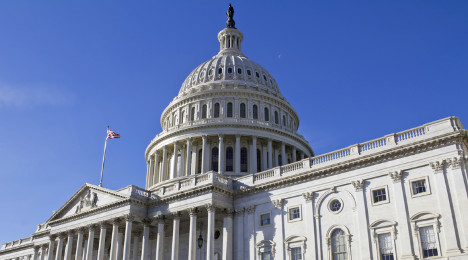Mixed assessment of latest House regulatory move

Photo from Shutterstock.com
By subscribing, you agree to receive communications from Auto Remarketing and our partners in accordance with our Privacy Policy. We may share your information with select partners and sponsors who may contact you about their products and services. You may unsubscribe at any time.
WASHINGTON, D.C. –
While plenty of attention went toward the U.S. House voting major changes involving healthcare last week, the House Financial Services Committee passed the Financial CHOICE Act 2.0 — the measure that would greatly modify the Dodd-Frank Act and the Consumer Financial Protection Bureau.
The committee passed the proposal along party lines by a 34-26 vote with all Democratic lawmakers opposing and all Republican members supporting the plan crafted by chairman Jeb Hensarling, who wants to make a wide array of changes, including:
—Allowing the sole director to be removed at will by the president
—Removing the bureau’s supervisory authority
—Limiting the CFPB’s enforcement authority to enumerated statutes
—Removing its unfair, deceptive, and abusive acts or practices (UDAAP) authority
Subscribe to Auto Remarketing to stay informed and stay ahead.
By subscribing, you agree to receive communications from Auto Remarketing and our partners in accordance with our Privacy Policy. We may share your information with select partners and sponsors who may contact you about their products and services. You may unsubscribe at any time.
—Repealing mandatory advisory boards and market monitoring authority.
“The American Financial Services Association (AFSA) fully supports this legislation crafted by the House Financial Services Committee under the leadership of chairman Jeb Hensarling,” said a spokesman for AFSA in a message to SubPrime Auto Finance News. “AFSA believes the CFPB’s current approach to oversight of the vehicle finance industry amounts to regulation by enforcement.”
The Financial Services Roundtable (FSR) also gave a succinct, positive reaction to the committee’s actions, calling it an important first step to improving the regulatory system and promoting economic growth. FSR chief executive officer Tim Pawlenty signaled support for many of the provisions in the proposal.
“Improvements to financial regulations can lead to economic growth, while still protecting taxpayers and consumers,” Pawlenty said. “We thank the Committee for its leadership in driving the regulatory reform debate forward and look forward to working with policymakers to craft a regulatory reform system that unlocks more economic opportunity for all Americans.”
Consumer Bankers Association (CBA) president and chief executive officer Richard Hunt cheered the passage, as well, but Hunt still has some reservation about what the Financial CHOICE Act 2.0 contains.
“Since Dodd-Frank’s passage, banks have been working diligently to comply with the sometimes onerous and duplicative requests of regulators,” Hunt said. “We are encouraged by chairman Hensarling’s commitment to meaningful and targeted changes to Dodd-Frank, and welcome many of the Financial CHOICE Act’s provisions which provide regulatory relief for both banks and consumers, such as the repeal of the Durbin Amendment. With almost no debate prior to passage, the Durbin Amendment imposed price controls on debit interchange fees while promising lower prices for consumers — but the savings never came.
“In addition, CBA appreciates many of the committee’s reforms to the CFPB,” Hunt continued. “However, we continue to believe consumers would be best served by establishing a five-person, bipartisan commission at the bureau. In order to achieve long-term economic stability and sustain consumer confidence, the CFPB must be governed by a diverse group of policymakers and industry experts who understand the everyday needs of American families and small businesses.”
Both Democrats on the committee and other consumer advocates criticized Hensarling and this proposal, often interjecting the moniker “wrong choice” within the reactions.
Committee Democrats mentioned 13 amendments to the Financial CHOICE Act 2.0, adding that “Republicans ultimately rejected all Democratic amendments proposed.” How the matter unfolded upset the likes of Liz Ryan Murray, policy director of People’s Action Institute.
“The wrong CHOICE Act would cripple the CFPB’s ability to protect us — the American people. Big banks and loan sharks brought our economy to the brink of collapse in 2008. We refuse to let Rep. Hensarling and the GOP eliminate the protections we’ve won. The wrong CHOICE Act destroys the CFPB’s independence and ties its hands,” Ryan Murray said.
“Congress must immediately reject this Wall Street wish list. They are supposed to serve the people, not corporate profits,” she went on to say.


